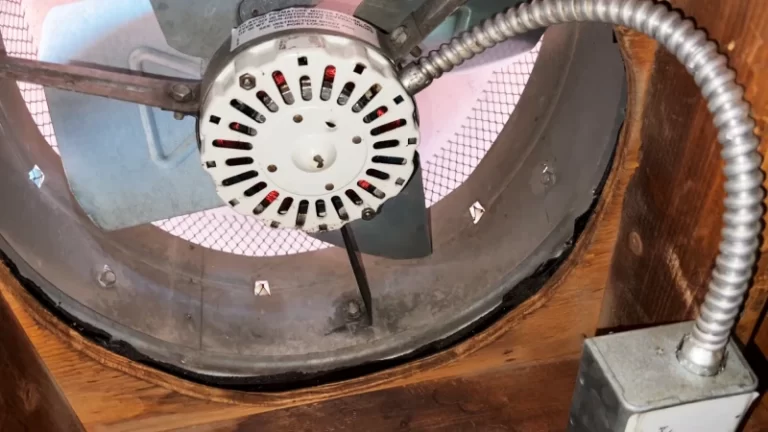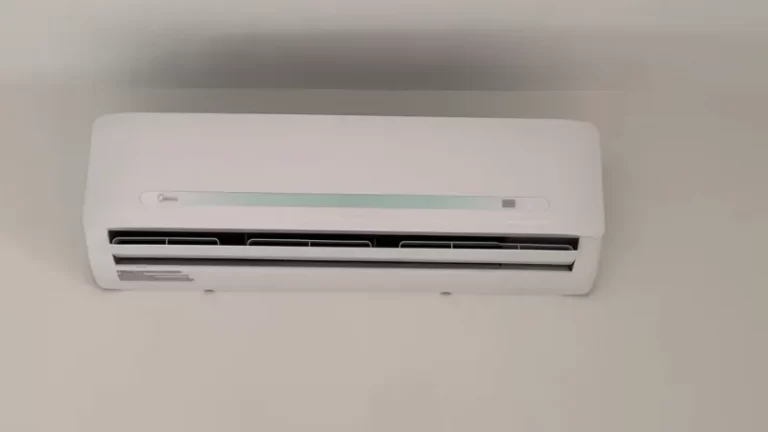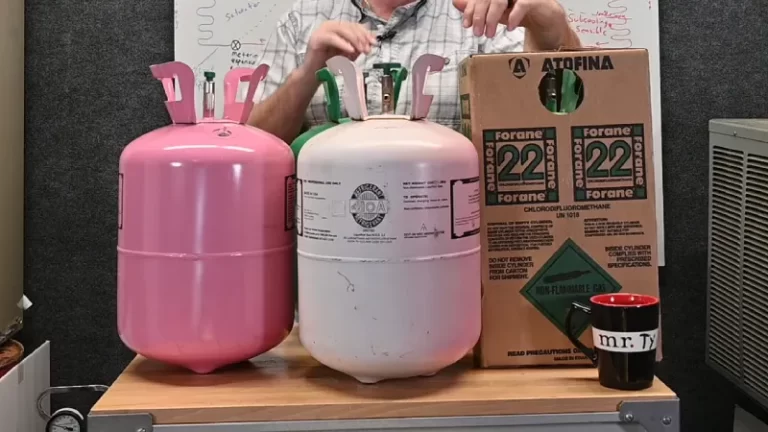Fisher Paykel Refrigerator Noise Problem and Solutions
Fisher & Paykel is a well-known brand that designs and manufactures high-quality refrigerators. These refrigerators are known for their innovation, style, and reliability. However, like all appliances, they can sometimes experience noise problems.
The purpose of this blog is to address the most common noise issues that Fisher & Paykel refrigerators may encounter and provide tips for reducing or eliminating these noises. Whether you’re a current owner or considering purchasing a Fisher & Paykel refrigerator, this guide will be helpful in understanding the various noises that these appliances can make and how to resolve them.
You'll Learn About
Fisher Paykel Refrigerator Noise Problem
Fisher & Paykel refrigerators may make some unfamiliar noises, such as cracking, popping, hissing, running water, or humming. These noises are considered normal and are described in the “User warnings and sounds” section of the User Guide.
If a refrigerator is making strange sounds, it is suggested to ensure that it is placed on a level surface and to adjust the feet if necessary. For more information, refer to the Fisher & Paykel website’s “Unfamiliar Noises” page.
Understanding Normal Refrigerator Noises
Refrigerators are complex appliances that contain various moving parts and systems that work together to keep your food and drinks cold. As a result, it’s not uncommon for them to make some unfamiliar noises, such as cracking, popping, hissing, running water, or humming. Understanding what these noises are and why they occur is essential in determining whether they’re normal or indicate a problem.
Why the Refrigerant Noises
Refrigerant noises are the sounds that occur when refrigerant is flowing through the system. These sounds are normal and are caused by the refrigerant moving through the pipes and components of the refrigerator.
For example, a hissing sound may be heard when the refrigerant is being released into the evaporator. A humming sound may be heard when the compressor is running.
“User Warnings and Sounds”
It’s crucial to familiarize yourself with the different sounds that your Fisher & Paykel refrigerator may make and what they mean. The User Guide’s “User Warnings and Sounds” section provides a comprehensive explanation of the normal sounds that your refrigerator may make and what they indicate. Reading this section will help you understand what is normal and what may indicate a problem, so you can address it promptly if necessary.
understanding normal refrigerator noises is essential in maintaining the health of your Fisher & Paykel refrigerator. If you’re unsure about the sounds that your refrigerator is making, refer to the User Guide’s “User Warnings and Sounds” section for guidance. By staying informed and proactive, you can keep your refrigerator running smoothly and efficiently for years to come.
Common Causes of Strange Sounds in Fisher & Paykel Refrigerators
While normal refrigerant noises are expected in Fisher & Paykel refrigerators, strange sounds can be indicative of a problem that needs to be addressed. Some of the most common causes of strange sounds in these refrigerators include an uneven surface, loose parts, clogged condenser coils, and cooling fan problems.
1. Uneven Surface
An uneven surface can cause strange sounds in Fisher & Paykel refrigerators. If the refrigerator is not level, the doors may not close properly, which can cause the refrigerant system to work harder, leading to strange noises.
To resolve this issue, you need to ensure that the refrigerator is on a level surface. If the feet need to be adjusted, you can refer to the User Guide for instructions.
2. Loose Parts
Loose parts can cause strange sounds in Fisher & Paykel refrigerators. For example, a loose fan blade can cause the fan to rub against the housing, causing a loud, vibrating noise. To resolve this issue, you need to tighten any loose parts.
This may involve removing panels and accessing the interior of the refrigerator, so it’s essential to follow the instructions in the User Guide carefully.
3. Clogged Condenser Coils
Clogged condenser coils can cause strange sounds in Fisher & Paykel refrigerators. The condenser coils help to dissipate heat from the refrigerant system, so if they’re clogged, the system has to work harder to maintain the correct temperature.
This can result in strange noises, such as a humming sound from the compressor. To resolve this issue, you need to clean the condenser coils. This may involve removing the coils and cleaning them with a soft brush.
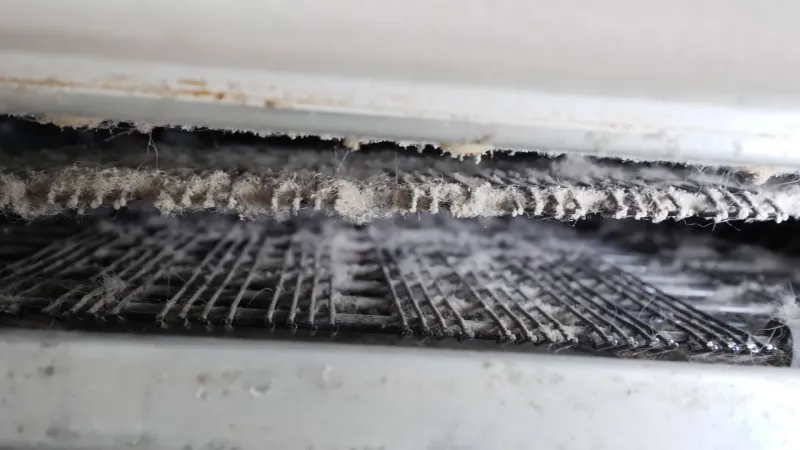
4. Cooling Fan Problem
A cooling fan problem can cause strange sounds in Fisher & Paykel refrigerators. The cooling fan helps to circulate air and remove heat from the refrigerant system, so if it’s not working properly, strange noises may be heard.
To resolve this issue, you need to repair the cooling fan. This may involve replacing the fan or repairing the motor, so it’s important to follow the instructions in the User Guide carefully.’
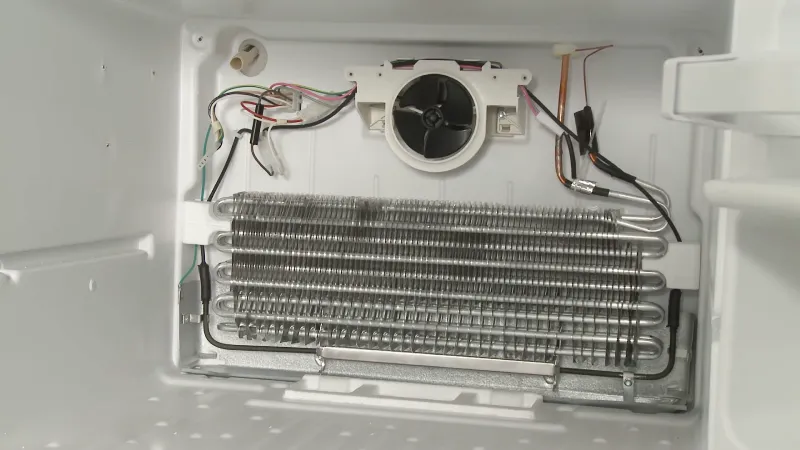
5. Water Line Issues
Fisher & Paykel refrigerator water lines may leak, freeze, break, or rust. Depending on the cause of the leak, the water line may need to be repaired, replaced, or redirected.
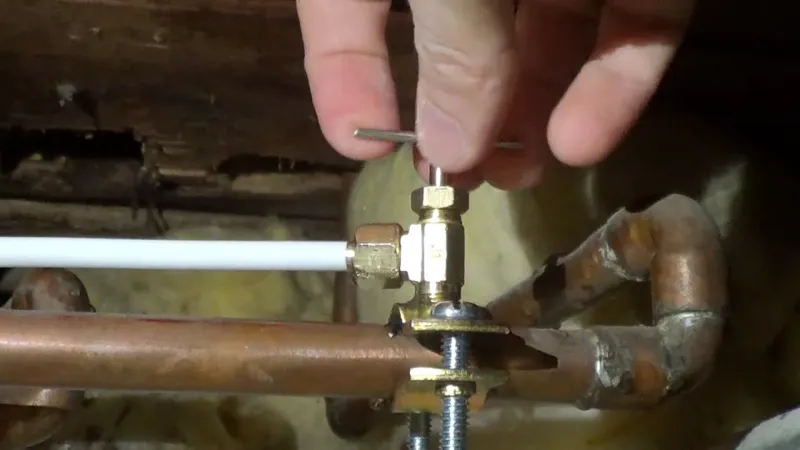
Some of the most common reasons for leaky water lines in Fisher & Paykel refrigerators include:
- Low water pressure
- Clogged or damaged water line(s)
- Low water temperature (a water line that is too hot is the most common cause of this issue)
- Freezing water (a very low water temperature that persists for an extended period of time is most common with this issue)
- Rusty and broken water lines (rust is a common and often-inexplicable issue with Fisher & Paykel refrigerators)
If you suspect that your water line is leaking, you should stop using the refrigerator immediately to prevent damage to the water line and other components in the refrigerator.
6. Brand-new Fridge Settling In
This is generally caused by a fault in the water pump or draining problem. This can be tested by turning off the water supply and removing the drain plug and then turning it on again. The fridge may sound different with water flow. If it sounds different with water flow, you need to check the gaskets to see if they’re properly seated and you may have to lubricate any joints to get them back in place.
Draining Problems
This can also be caused by faulty installation of the fridge or a problem with the door gaskets. If the gaskets don’t seat properly, the air pressure in the system can change, which can result in strange noises, particularly if you have a built-in fridge. You can check that they’re all in place using the manual drain plug.
Checking the gaskets in this way can help to identify any problems that may be contributing to the problem.
Checking the gaskets can also identify a problem with the door gaskets, which could be making a strange noise, which may or may not be heard when you turn the fridge on. This could be due to the gaskets being dirty or having water on them. If you can’t see any water on the gaskets, you may need to look inside the fridge to see if there’s anything stuck.
A quick and simple way to do this is to use a flashlight and look down the cracks between the doors. If there’s something in there, you’ll be able to see it with the torch light. If there’s something stuck inside the fridge and you can’t see it, you’ll have to lift out all of the shelves, and possibly the bottom shelf too. If you find any debris you should remove it before you proceed further and wash everything down thoroughly.
If you’re hearing strange sounds from your Fisher & Paykel refrigerator, it’s essential to identify the cause and resolve it promptly. Some of the most common causes include an uneven surface, loose parts, clogged condenser coils, and cooling fan problems. By understanding these issues and following the instructions in the User Guide, you can keep your refrigerator running smoothly and quietly for years to come.
Tips for Reducing Noise in Fisher & Paykel Refrigerators
While some refrigerant noises are normal in Fisher & Paykel refrigerators, excessive or unusual noises can be annoying. To reduce noise in your refrigerator, consider the following tips:
Proper Placement
One of the simplest ways to reduce noise in your Fisher & Paykel refrigerator is to place it in a location that’s away from living spaces. If your refrigerator is near a bedroom or living room, it may be worth moving it to a different location, such as a basement or garage.
Regular Cleaning and Maintenance
Regular cleaning and maintenance can also help to reduce noise in Fisher & Paykel refrigerators. By keeping the condenser coils, cooling fan, and other components clean, you can ensure that the refrigerant system operates smoothly and quietly. You should also check the User Guide for information on regular maintenance tasks, such as replacing the air filter or checking the door gaskets.
Avoid Overloading the Shelves
Overloading the shelves in your Fisher & Paykel refrigerator can cause excessive vibration and noise. To reduce noise, be sure to distribute the weight evenly across the shelves and avoid placing heavy items on top of one another.
Consider Soundproofing Materials
If your Fisher & Paykel refrigerator is located near a living space, you may want to consider using soundproofing materials to reduce noise. There are a variety of materials available, including foam mats, soundproof curtains, and acoustic panels, which can help to absorb sound and reduce noise levels.
there are several ways to reduce noise in Fisher & Paykel refrigerators. From proper placement and regular cleaning and maintenance to avoid overloading the shelves and considering soundproofing materials, these tips can help to ensure that your refrigerator operates quietly and efficiently. By taking the time to reduce noise, you can create a more peaceful and enjoyable living environment for you and your family.
Conclusion
Fisher & Paykel refrigerators are designed to operate with some level of refrigerant noise, however, excessive or strange sounds can be a sign of a problem. Understanding normal refrigerant noises, as well as common causes of strange sounds such as uneven surfaces, loose parts, clogged condenser coils, and cooling fan problems, is important in ensuring that your refrigerator operates efficiently and quietly.
Additionally, by following tips such as proper placement, regular cleaning, and maintenance, avoiding overloading the shelves, and considering soundproofing materials, you can reduce noise levels and improve your overall experience with your Fisher & Paykel refrigerator. Electrolux Refrigerator also fetches these kinds of noise problems.
It’s important to address any noise issues promptly to ensure that your refrigerator is functioning properly and to avoid any potential problems down the line. To keep your Fisher & Paykel refrigerator in top condition, be sure to follow the manufacturer’s guidelines and recommendations, and consider seeking professional assistance if you experience any persistent or unusual sounds.

